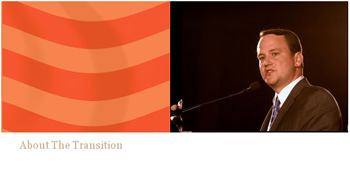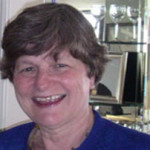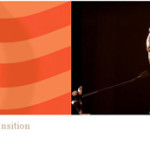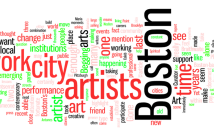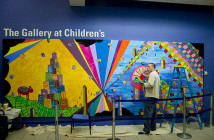Deval Patrick and Tim Murray will have had nine weeks between Election Day and inauguration to prepare a new administration for their next four years in office. Nine weeks, when considering the length of the administration and 16 years of a different political party running Massachusetts, may seem like a dauntingly short amount of time to appoint a new cabinet and set a four year agenda for the state.
To help with the monumental task of transitioning between two administrations, a Transition Committee was formed to make the shift “from the old government to the new one as smooth as possible and ensure that Deval Patrick and Tim Murray are ready to govern when they take office.” (Patrick/Murray Transition website http://patrickmurraytransition.org/transition.cfm) To help set goals and guidelines, the Transition Committee divided government into 15 different parts, ranging from Budget & Finance to Workforce Development & Training, and formed 15 “Working Groups” to discuss and plan an agenda for each of these different sectors. In order to involve the public, each working group held community meetings throughout the state.
The arts oriented Working Group, titled Creative Economy, held one of its four meetings in the tower building of the Massachusetts College of Art on December 7th. Torin Koester, the Creative Economy Working Group’s coordinator, commenced the meeting, introducing the members present of the Working Group and explained the evening’s format. Katherine (Kay) Sloan, President of MassArt and one of the two out of the 15 Working Group members in attendance, began the proceedings by describing what they hoped to accomplish with the group and the community meeting.
The first speaker, Dan Nash of Boston, articulately proclaimed the idyllic state the arts could reach in Massachusetts under the new administration. Like a few of the other speakers, he praised Patrick and Murray well before they’ve had a chance to prove themselves. Douglas Kornfeld, an artist from Boston, testified about the lack of support for public art in Massachusetts, when compared to other states. Unlike in New York, there is no ‘1% for public art’ legislation for new construction projects, and there are very few artists in the decision making process for arts-related legislation and selection committees for public art. This complaint was echoed by artists Steve Locke and Kathleen Bitetti, also of the Artists Foundation, who chided the Transition Team for not having any working artists in the Creative Economy working group. Bitetti went on to detail the personal financial hardships working artists face if they attempt to make a living off their work, while Locke noted that artists are leaving Massachusetts to settle in states where standards for the support of artists are better.
One speaker got up to speak of how important music education was to children and cited evidence from a music education program she was involved in; most of the students went on to Ivy-League colleges and universities. Shortly thereafter, a music teacher spoke of how only children of wealthy parents can afford music lessons, contradicting, in a way, the previous speaker’s evidence of music education’s enriching qualities, though highlighting the need for a substantial increase in the amount of aid for arts education.
Many of the speakers were Directors of area Non-Profits. Rebecca Blunk, the Executive Director of New England Foundation for the Arts (NEFA), Candelaria N. Silva of Act Roxbury and Carol Walton of Create Boston, a division of the overly maligned Boston Redevelopment Authority (BRA) were among many who gave specific requests to the administration such as the establishment of a permanent office for the arts in Massachusetts. Many called for the “Creative Economy” to be treated like an actual economic sector, such as BioTech, but others warned against measuring the arts in the same way as for-profit businesses.
The make-up of the Creative Economy Working Group raises some questions. Chaired by Jill Medvedow, the Executive Director of the ICA, the Group has members of philanthropic organizations, such as Helen Spaulding, who helped build the Boston Foundation’s Arts Fund, but many are local business leaders like Jim Rooney the Executive Director of the Massachusetts Convention Center Authority. A few of the Working Group’s members are tourism focused, yet others aren’t focused on tourism so much as they are getting people just to come to Massachusetts such as Rooney and Ron Druker, Owner of the Colonnade Hotel. Much of the region’s tourism is due to its arts and cultural resources, but Jim Rooney, who arrived late to the meeting and contributed less than all of those who testified, has a much different stake in the state’s economy than artists like Kathleen Bitetti and Steve Locke.
The meeting was not very well publicized—news of it spread by word of mouth—but it was very well attended. This could be due to the close knit arts community in Boston, however, all of the Community Meetings of all 15 Working Groups were well attended, speaking to how tightly entwined the actual roots of the self-professed grass-roots of the Deval Patrick campaign actually were. There are many who want Deval Patrick to govern to the message of hope he used to bring so many people together, yet, as evidenced by the meeting, there is a lot of work to do.
Links:
PatrickMurrayTransition.org
The Creative Economy Working Group Community Meeting in Boston was held at MassArt on December 7, 2006
Images are courtesy of the Patrick/Murray Transition Team and Massachusetts College of Art.

